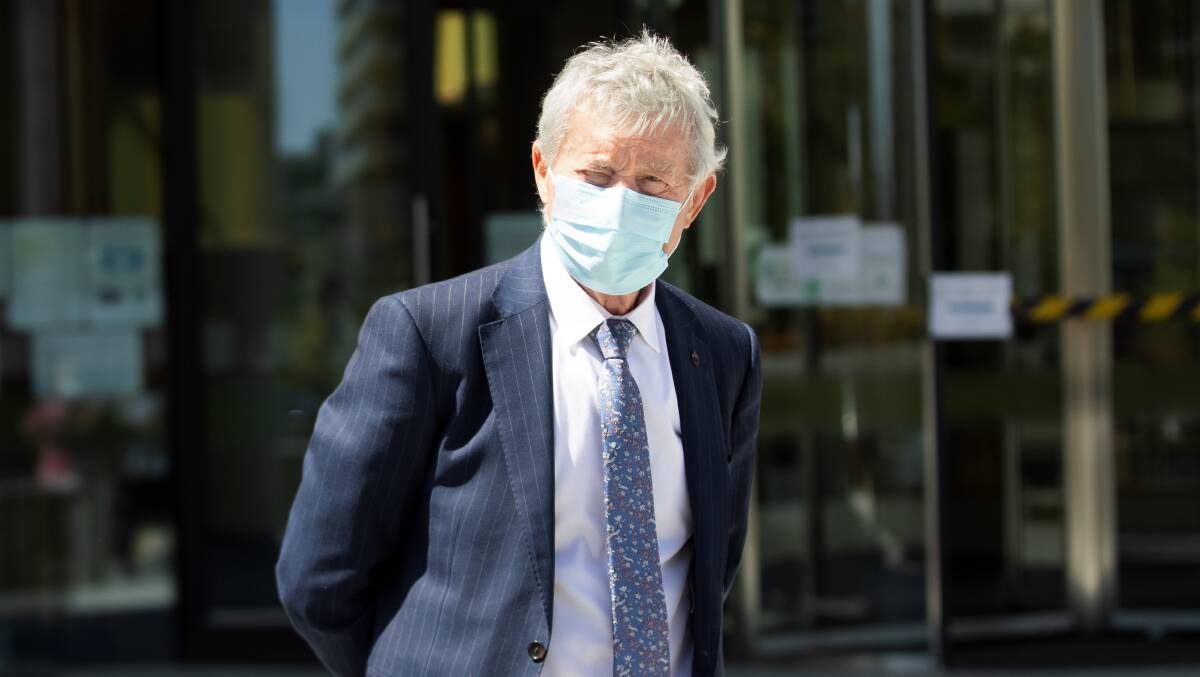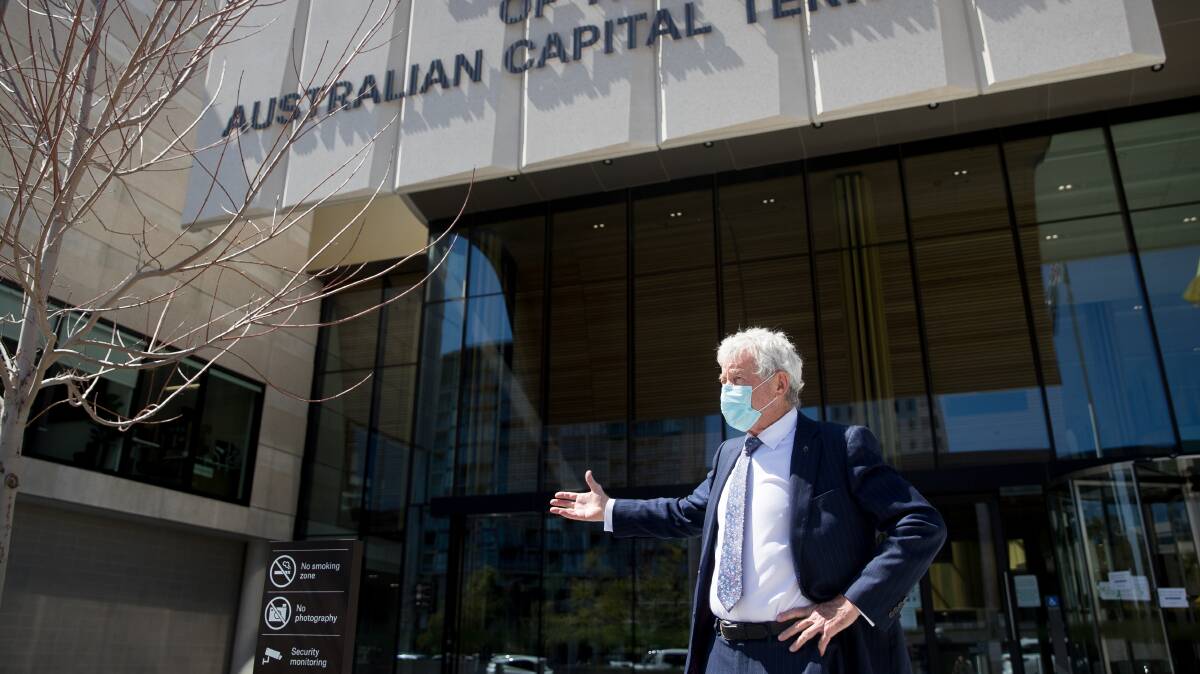
The federal Attorney-General will be allowed to rely on secret evidence Bernard Collaery and his legal team cannot see as the whistleblower is prosecuted over the exposure of an Australian espionage operation in East Timor.
Mr Collaery, a Canberra lawyer and former ACT politician, is defending four charges that allege he illegally shared protected information about the Australian Secret Intelligence Service with journalists.
He also denies one count of illegally conspiring with a former client, the ex-spy known as Witness K, to communicate such information to the government of East Timor.
The information was that Australia had bugged a government building in the impoverished nation while the two allies were negotiating over lucrative oil and gas reserves in 2004.
The latest phase of the protracted prosecution has focused on the 77-year-old's efforts to prevent Attorney-General Michaelia Cash being able to rely on so-called "court-only evidence" as part of arguments about how much of his trial will be conducted in public.
In an ACT Supreme Court judgment published late on Tuesday, Justice David Mossop said he was satisfied it would be "in the interests of national security" to make an order permitting Senator Cash to do this.

The judge said the key question was whether or not it was appropriate to allow this evidence to be placed before the court in circumstances where it would not be disclosed to Mr Collaery.
While he accepted Mr Collaery would be deprived of opportunities usually available to defendants, Justice Mossop said the court could appoint a special counsel - a barrister from outside the accused's legal team - to represent his interests in relation to the secret material.
"The appointment of special counsel will, assuming the defendant wishes to participate in the process, reduce the disadvantage to the defendant arising from the non-disclosure of the material," the judge said.
"It will allow any proper objections to the admissibility of the evidence to be made.
"It will allow submissions to be made about whether there should be cross-examination and, if that is permitted, allow a degree of testing of the evidence."
MORE COURT AND CRIME NEWS
- Woman denies faking kidnapping to cover up extortion attempt
- How tumbling out of a car put magistrate on path to court bench
- Blow for lawyer in fight against money laundering conspiracy charge
- Wounds run deep as community comes to terms with tragedy
Justice Mossop ultimately said allowing some "court-only evidence" was the "the best accommodation of the competing private and public interests in the circumstances of the case".
He also rejected suggestions the making of such an order would erode public confidence in the court system.
The judge said the "court-only evidence" did not impact on the case Mr Collaery would ultimately have to answer, with it relating only to the issue of how much of the trial would be open to the public.
While Mr Collaery has already been before the ACT courts for nearly four years, it remains unclear when his trial will be held.
Several preliminary issues are still to be determined, including one that is the subject of an appeal to the High Court.
In the meantime, Mr Collaery's matter returns to the Supreme Court on Friday for the making of formal orders about the secret evidence.







